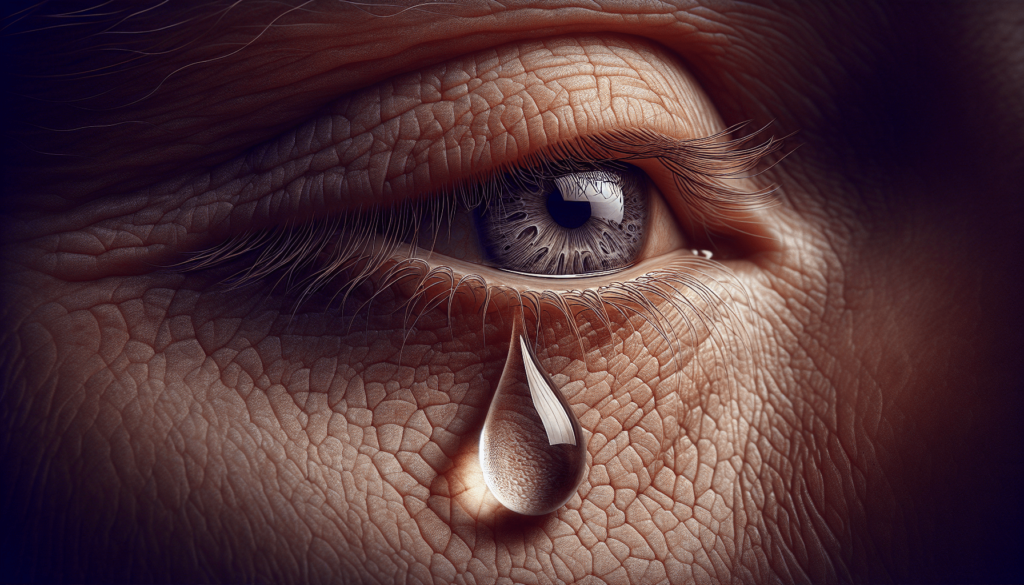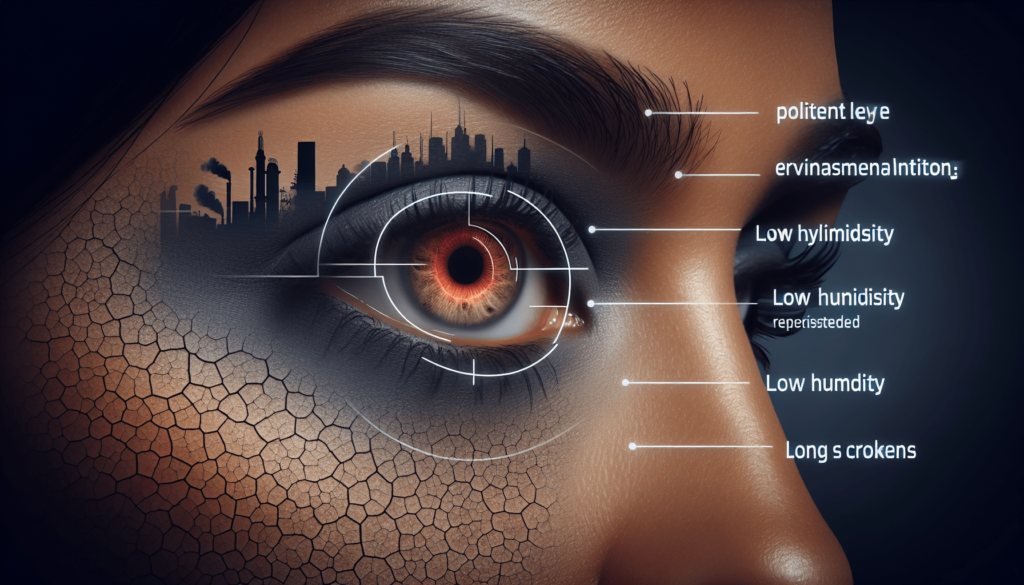Hey there! If you’ve ever experienced the uncomfortable symptoms of dry eye syndrome, you may be wondering what exactly is causing it. From environmental factors like dry air and excessive screen time to underlying health conditions and medications, there can be a variety of reasons behind this pesky condition. In this article, we will explore the primary causes of dry eye syndrome and how to effectively manage and treat it. So sit back, relax, and let’s dive into the world of dry eyes together!
What Are The Primary Causes Of Dry Eye Syndrome?
Have you ever experienced dry, irritated eyes that just won’t seem to go away no matter how many times you blink or use eye drops? If so, you may be one of the millions of people suffering from dry eye syndrome. But what exactly causes this uncomfortable condition? Let’s take a closer look at the primary causes of dry eye syndrome.
Environmental Factors
You may not realize it, but the environment around you can play a significant role in the development of dry eye syndrome. Factors such as air pollution, smoke, windy conditions, and low humidity can all contribute to the evaporation of tears and lead to dry, irritated eyes.
Aging
As you age, your body undergoes various changes, including the production of tears. With age, the production of tears decreases, leading to a higher likelihood of developing dry eye syndrome. Hormonal changes in women during menopause can also contribute to dry eyes.
Medical Conditions
Several medical conditions can increase the risk of developing dry eye syndrome. Conditions such as diabetes, rheumatoid arthritis, lupus, thyroid disorders, and Sjogren’s syndrome can affect the production of tears and cause dry eyes.
Medications
Believe it or not, certain medications can also contribute to the development of dry eye syndrome. Antidepressants, antihistamines, decongestants, hormone replacement therapy, medications for high blood pressure, and acne medications are just a few examples of medications that can cause dry eyes as a side effect.
Contact Lens Wear
If you wear contact lenses regularly, you may be at a higher risk of developing dry eye syndrome. Contact lenses can restrict the flow of oxygen to your eyes, leading to dryness and irritation. Additionally, improper care and hygiene of contact lenses can increase the risk of eye infections, which can also contribute to dry eyes.
Screen Time
In today’s digital age, we spend more time than ever staring at screens – whether it’s a computer, smartphone, tablet, or television. This increased screen time can lead to a decreased blink rate, resulting in dry, irritated eyes. The consistent focus on digital screens can also cause eye strain and fatigue, further exacerbating dry eye symptoms.
Eyelid Problems
Issues with your eyelids can also contribute to the development of dry eye syndrome. Conditions such as blepharitis, meibomian gland dysfunction, or eyelid malpositions can affect the quality and quantity of your tears, leading to dryness and discomfort.
Posterior Blepharitis
Another form of blepharitis is called posterior blepharitis or meibomian gland dysfunction. This condition occurs when the meibomian glands in the eyelids become blocked or dysfunctional, leading to the inadequate production of oil that helps keep tears from evaporating too quickly. This can result in dry, irritated eyes and discomfort.
Computer Vision Syndrome
If you spend long hours in front of a computer screen, you may be at risk of developing computer vision syndrome, also known as digital eye strain. This condition can lead to dry eyes, eye strain, fatigue, headaches, and blurred vision. Proper ergonomics, frequent breaks, and the 20-20-20 rule (taking a 20-second break every 20 minutes and looking at something 20 feet away) can help reduce the risk of developing dry eye syndrome due to computer vision syndrome.
Allergies
Seasonal allergies or allergic reactions to certain substances can also contribute to the development of dry eye syndrome. Allergens in the air, such as pollen, dust mites, pet dander, or mold, can trigger an inflammatory response in the eyes, leading to dryness and irritation. Managing allergies with antihistamines, avoiding triggers, and using artificial tears can help alleviate dry eye symptoms.
Smoking
If you’re a smoker, you may be increasing your risk of developing dry eye syndrome. Smoking can lead to oxidative stress on the eyes, reduce tear production, and contribute to inflammation in the tear ducts, all of which can result in dry, irritated eyes. Quitting smoking can help improve overall eye health and reduce the risk of dry eye syndrome.
Eye Surgery
Certain eye surgeries, such as LASIK or cataract surgery, can sometimes cause temporary dry eye symptoms as a side effect. The surgery can disrupt the nerve fibers responsible for tear production, leading to decreased tear production and dryness. In most cases, dry eye symptoms improve over time as the eyes heal, but some individuals may experience chronic dry eye after surgery.
Hormonal Changes
Fluctuations in hormone levels, such as those experienced during pregnancy or menopause, can affect tear production and quality, leading to dry eye syndrome. Hormonal changes can alter the composition of tears, resulting in dryness and irritation. Managing hormonal imbalances and using lubricating eye drops can help alleviate dry eye symptoms.
In conclusion, dry eye syndrome can be caused by a variety of factors, including environmental conditions, aging, medical conditions, medications, contact lens wear, screen time, eyelid problems, computer vision syndrome, allergies, smoking, eye surgery, and hormonal changes. By identifying and addressing the primary causes of dry eye syndrome, you can better manage and alleviate your symptoms. If you’re experiencing persistent dry eye symptoms, consult with an eye care professional for a comprehensive evaluation and personalized treatment plan. Remember, your eye health is essential, so take care of your eyes and seek help when needed.


